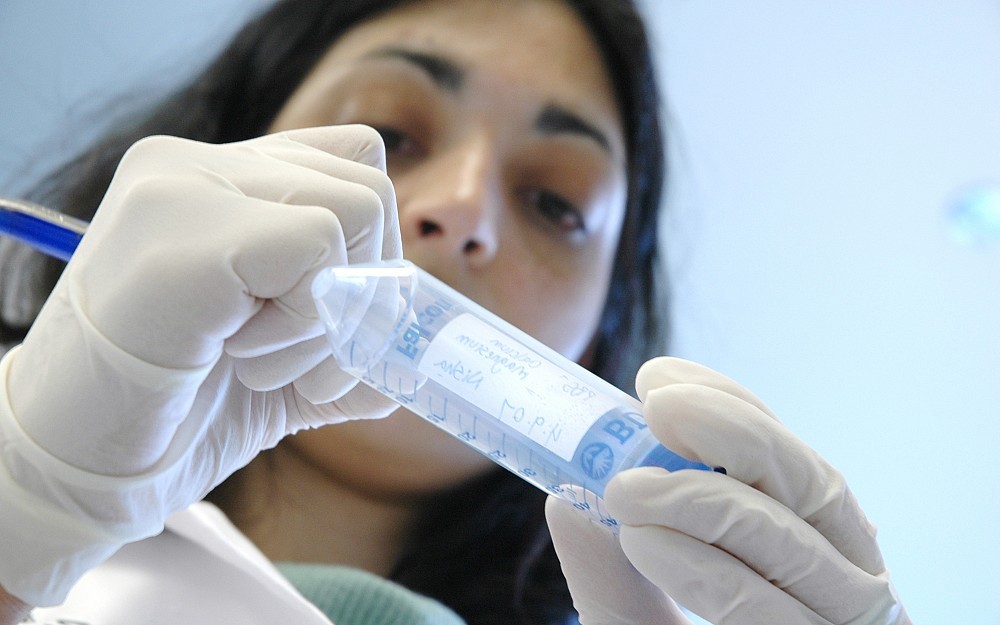
Early Stage Oncology Drug Development Program Opens in Cincinnati
CincinnatiThe University of Cincinnati (UC) College of Medicine has launched an early stage oncology drug development program and phase-1 clinical trials unit.
The Early Stage Drug Development Program will give patients in Greater Cincinnati and beyond access to discovery-driven cancer treatment options currently only available in an experimental clinical trial setting.
Phase-1 clinical research trials are the first step in testing scientific concepts revealed in a laboratory for human treatment applications. Trials are intended for patients with advanced solid tumors that have failed standard cancer therapies.
Only a handful of dedicated phase-1 cancer units exist across the United States. The UC program is the first of its kind within 120 miles of Greater Cincinnati to offer adult phase-1 cancer clinical trials. The Cincinnati Childrens Cancer and Blood Diseases Institute currently offers early-stage clinical trials for pediatric cancers.
Led by Olivier Rixe, MD, PhD, the Early Drug Development Program is part of the Cincinnati Cancer Consortium, a joint cancer program involving the UC College of Medicine, Cincinnati Childrens Hospital Medical Center and UC Health University Hospital. The collaborative initiative brings together interdisciplinary research teams of caring scientists and health professionals to research and develop new cures, while providing a continuum of care for children, adults and families with cancer.
Recruited to UCs division of hematology oncology in July 2009, Rixe has spent more than 15 years involved in early stage drug development trials that resulted in many of the successful anti-tumor agents used todayincluding oxaliplatin, camptothecins and taxanesas well as targeted anti-angiogenic compounds that block vessel growth in tumors, including sunitinib, axitinib and VEGF-trap.
Dr. Rixe is an exceptional physician and researcher who is uniquely qualified to build and lead a successful early stage drug development program for cancer at UC, says George Atweh, MD, director of the adult cancer program at the UC Barrett Cancer Institute at University Hospital and Koch Chair and professor of hematology oncology at the College of Medicine. His recruitmentand the institutions investment in this phase-1 clinical trial unitrepresent strong steps toward building a comprehensive cancer research and treatment center for the Greater Cincinnati community.
UCs program will focus on testing three primary areas: cytotoxic (cancer cell killing) drugs, potential molecular targets for new drugs and immunotherapy. Patients with solid cancerous tumors who have failed standard therapy may apply to participate.
Phase-1 trials evaluate safe dosages, method of administration (oral or injection) and frequency. Because these trials are the first step in human testing, trials typically include less than 50 people and therapy is administered in a hospital setting where the patient can be monitored 24/7 by the attending physicians and support staff.
Like all clinical research trials, treatment protocols are evaluated by the Institutional Review Board (IRB) for scientific content, safety and ethical considerations prior to implementation and throughout the trials conclusion.
As part of the Cincinnati Cancer Consortium, the Early Drug Discovery Program team has access to:
- 15 research nurses, regulatory coordinators and data managers
- Tissue banking services to manage frozen tumor and blood samples linked to clinical data
- A pharmacokinetics core facility to evaluate what happens when the body processes a drug, and
- Advanced imaging services using dynamic computed tomography (CT), dynamic contrast-enhanced magnetic resonance imaging and combination positron emission testing/CT scans
Rixe expects the programs first phase-1 oncology trial to open for enrollment at the UC Barrett Cancer Institute this spring. The trial, which is pending IRB approval and sponsored by Sanofi Aventis, will test a combination of two cytotoxic drugs for solid tumors that are thought to work with a different targeted mechanism of action to kill cancer on a cellular level. Three additional phase-1 trials are expected to open by spring 2010 testing targeted anti-cancer agents with a new mechanism of action.
To learn more about phase-1 clinical trials currently open at UC, call (513) 584-7698 or toll free at (866) 724-CURE. For information on the benefits and risks of phase-1 clinical trials, visit cancer.gov/clinicaltrials.

UC College of Medicine
Related Stories
Can new rules in Ohio address a pharmacy staffing shortage and...
May 17, 2024
The University of Cincinnati's Michael Hegener joined WVXU's Cincinnati Edition to discuss recent rules released by the Ohio Board of Pharmacy designed to address pharmacy staffing.
Is ketamine the answer to treatment-resistant depression?
May 16, 2024
The University of Cincinnati's Stephen Rush joined WVXU's Cincinnati Edition to discuss the use of ketamine and esketamine to treat treatment-resistant depression.
UC study: Severe ischemic strokes rare in total patient...
May 15, 2024
The University of Cincinnati’s Yasmin Aziz will present research at the European Stroke Organisation Conference that found severe ischemic strokes with the most severe damage are rare in the total stroke patient population.
